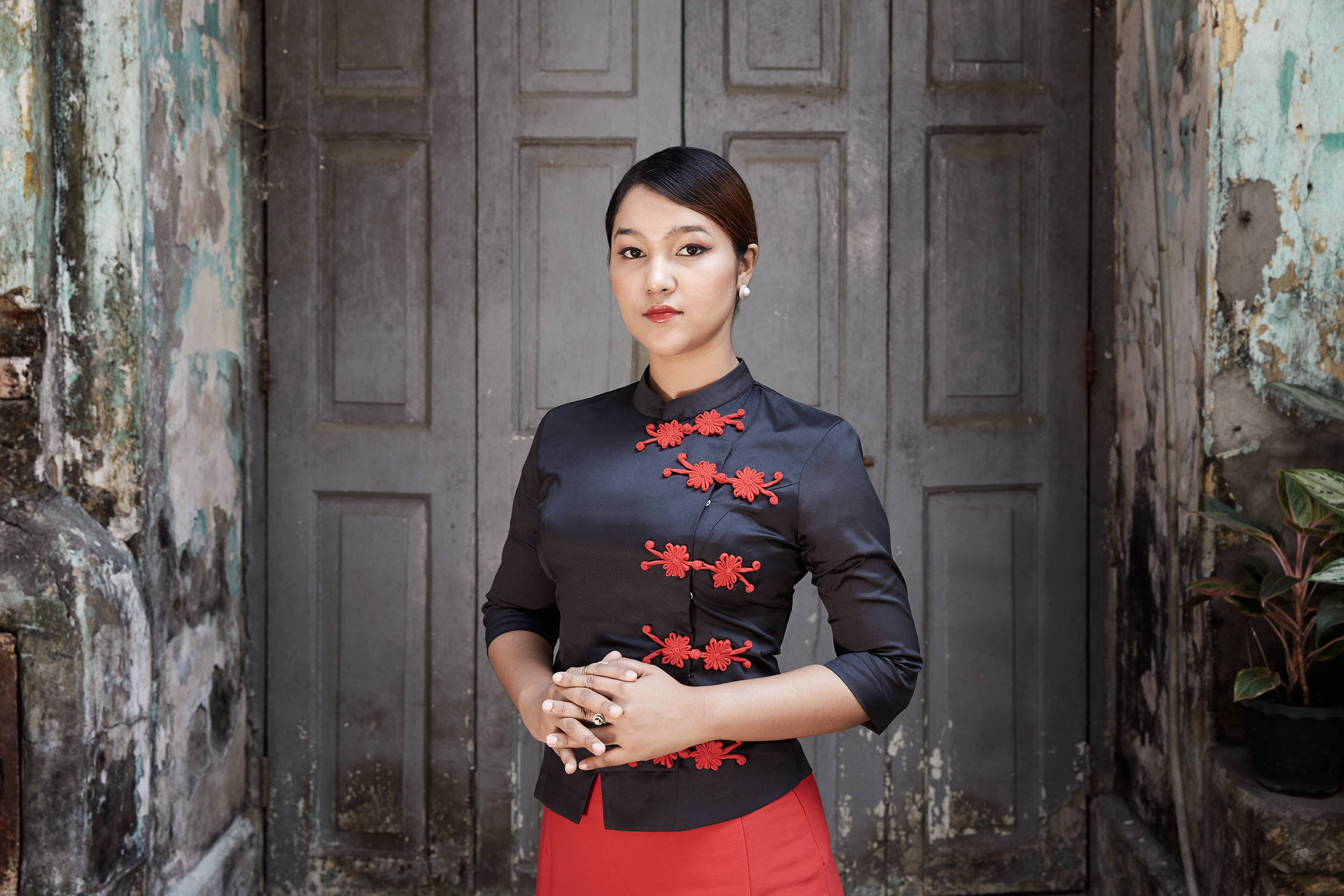Wai Wai Nu remembers a time when, as a young girl growing up in a town called Buthidaung, people could walk down the street without feeling afraid. They could go to a neighboring village to visit friends or buy food. People of different faiths studied, worked and played together. That’s what life was like in Rakhine state, on the west coast of Myanmar, before her family moved to Yangon, then the country’s capital, in 1993. When she returned to her home state in 2015, for the first time in more than two decades, she found a different reality. “Whoever I talk to,” she says, “they are living in fear; they are scared and hopeless.”
Nowadays, the northern part of Rakhine state is depicted as something of a hellscape. On Oct. 9, 2016, a deadly attack on border police triggered a military lockdown across parts of the state that border Bangladesh. Most of the population in this area — like Wai Wai — are Rohingya, a mostly stateless Muslim minority that has been persecuted by the government for decades. Many in Myanmar view the Rohingya as illegal immigrants from Bangladesh, though they have lived in Rakhine for generations.
But Wai Wai, a citizen and a well-known public figure, enjoys a special status that was not won easily — first as a political prisoner and later through public service. Until a few years ago, Myanmar was ruled by one of the world’s most brutal military regimes. Wai Wai, along with her parents and two siblings, were among thousands of political prisoners who spent years behind bars simply because they or someone close to them opposed the junta. They were tried in a closed-door hearing with no legal representation, and swiftly convicted. In 2005, then an 18-year-old law student, Wai Wai and most of her relatives were sentenced to 17 years in Yangon’s infamous Insein Prison; her father was dealt 47.

“After meeting so many [people in prison] who were not guilty of crimes, I realized that I wanted to do something that can really change the country’s political and economic system,” Wai Wai tells TIME. It was her incarceration that politicized Wai Wai, not her family or the persecution of her people. The seven years she spent locked up at Insein saddened and shocked her. She met many women there — a lot of them were her age or a bit younger. She says most had been jailed for prostitution, a line of work they fell into because of poverty, coercion, or both. “It was shocking for me to see, because I didn’t see a proper reason for their arrest,” she tells TIME. She now refers to this period as her “University of Life,” having been robbed of the years she would have spent in school.
When she was freed in 2012, at the age of 25, she quickly set out to become an agent of change. She earned her law degree and founded two NGOs — Women’s Peace Network-Arakan and Justice For Women — through which she aims to empower Myanmar’s youth through legal counsel and rights education. The former focuses on peace-building efforts in her home state. In 2015, she launched an online project to counter hate speech called the #MyFriend campaign, urging social media users to snap and share selfies with their friends of diverse racial and religious backgrounds. The idea was simple, cute, and it spread like wildfire.
Through her other project, Justice For Women, she organizes workshops to educate women about how to combat abuses that are shockingly common in Myanmar, such as sexual harassment and domestic violence. To some in the developed world, her courses may seem rudimentary—they focus on themes like “What is civic participation?”— but Wai Wai sees it as an investment in the future. “Focusing on youth is vital and important,” she says, “and it’s worth it.”
- The 100 Most Influential People of 2024
- Coco Gauff Is Playing for Herself Now
- Scenes From Pro-Palestinian Encampments Across U.S. Universities
- 6 Compliments That Land Every Time
- If You're Dating Right Now, You're Brave: Column
- The AI That Could Heal a Divided Internet
- Fallout Is a Brilliant Model for the Future of Video Game Adaptations
- Want Weekly Recs on What to Watch, Read, and More? Sign Up for Worth Your Time